Ennio Morricone’s life in pictures
- Published
Italian composer Ennio Morricone died in hospital in Rome at the age of 91.
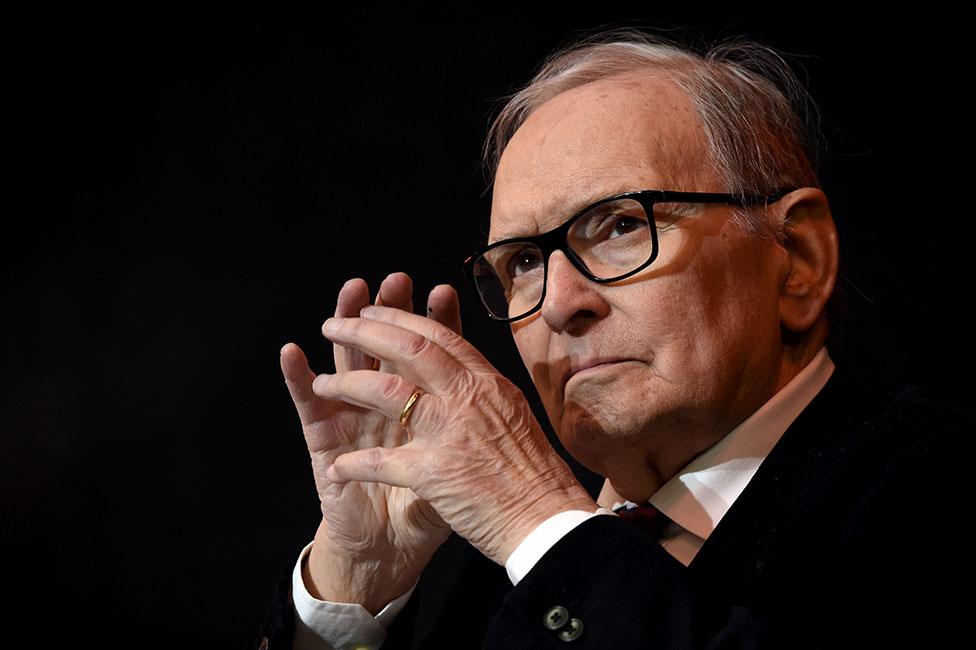
Known for putting the music to "spaghetti" Westerns that made Clint Eastwood a star, Morricone scored over 500 films in seven decades.
Here are pictures from his life and stills from some of the films he worked on.
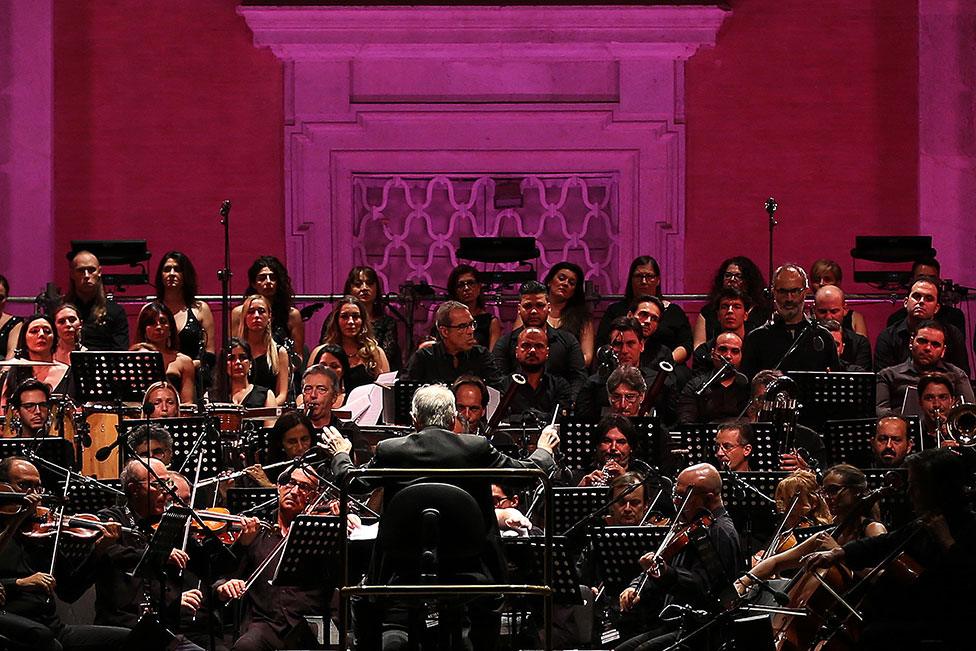
Ennio Morricone in concert with the Orchestra Roma Sinfonietta at the Royal Palace of Caserta, Italy, in 2017
Born in 1928, Morricone followed in the footsteps of his jazz trumpeter father and took up the instrument as a child, writing short compositions by the time he was six.
At the Santa Cecilia Conservatory music school in Rome, he was classmates with Sergio Leone.
They went on to form a director/composer partnership, with Morricone's early career marked by his scoring of "spaghetti" Westerns directed by Leone in the 1960s, such as A Fistful of Dollars and The Good, the Bad and the Ugly.
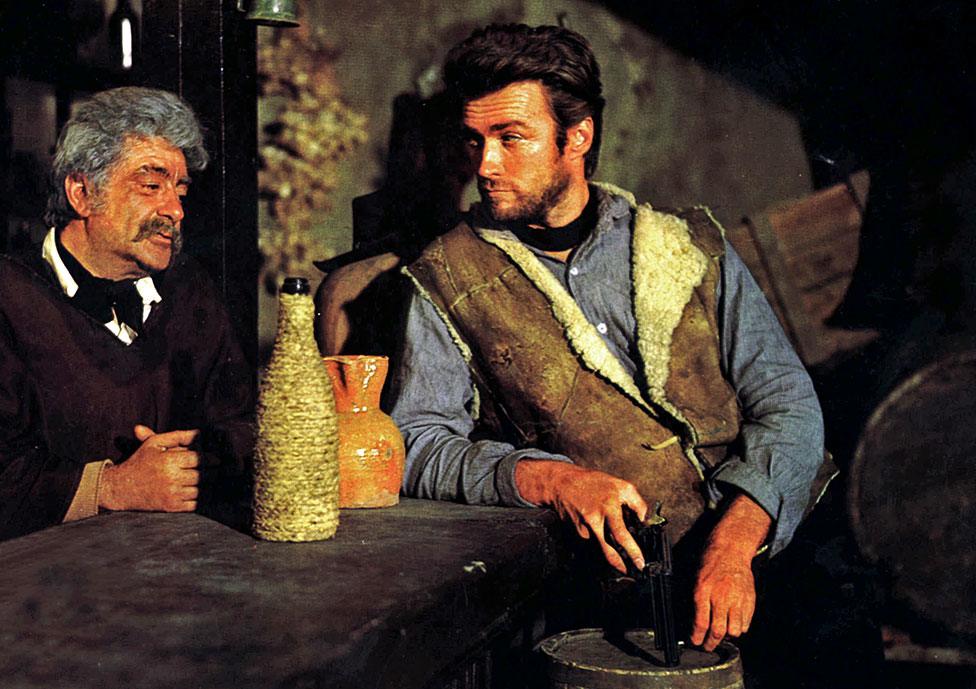
Jose Calvo (left) and Clint Eastwood in A Fistful of Dollars (1964)
With very little budget, Morricone used electric guitars and sound effects to punctuate the action on screen.
The composer's sparse soundtracks were an iconic component of Leone's revolutionary take on the Western genre.
In The Good, the Bad and the Ugly, the sounds of coyotes, trotting of drum rhythms and electric guitar twangs made the soundtrack a worldwide hit, reaching number one in the UK chart in 1968.
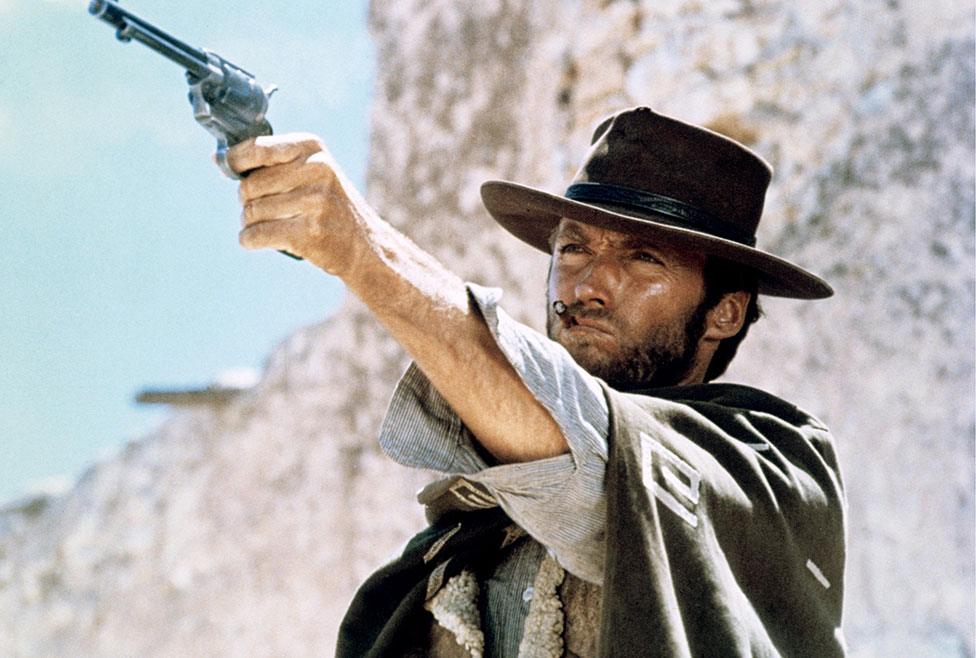
Clint Eastwood playing Blondie in the film The Good, the Bad and the Ugly (1966)
According to director Edgar Wright, Morricone "could make an average movie into a must-see, a good movie into art, and a great movie into legend".
Despite the temptation of Hollywood, Morricone never left his Italian hometown.
"I was offered a free villa in Hollywood," he said. "But I said, 'No thank you, I prefer to live in Rome.'"
He also composed many scores for Italian cinema.
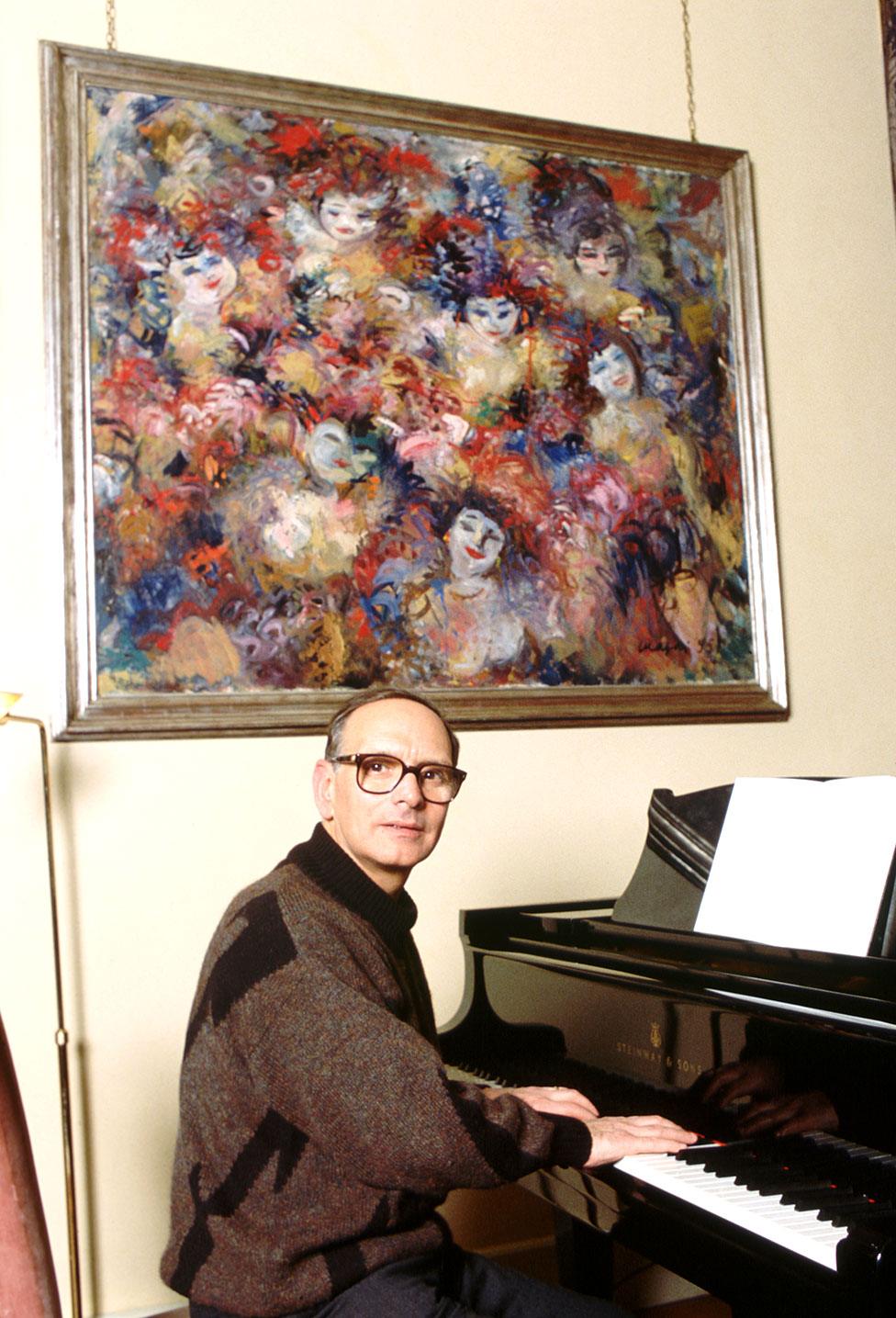
Ennio Morricone at his piano in Rome in 1986

Morricone's desire to reflect parts of his personality throughout his carefully produced compositions enhanced and transformed the emotional impact of the films, and he successfully adapted his work to many different styles of cinema.
"I am disturbed when people think about me as a specialist for Westerns," he once said. "They are only a relatively small percentage of the music I've written."
In Once Upon a Time in America, he used period jazz phrases in his score to set the right historical context.
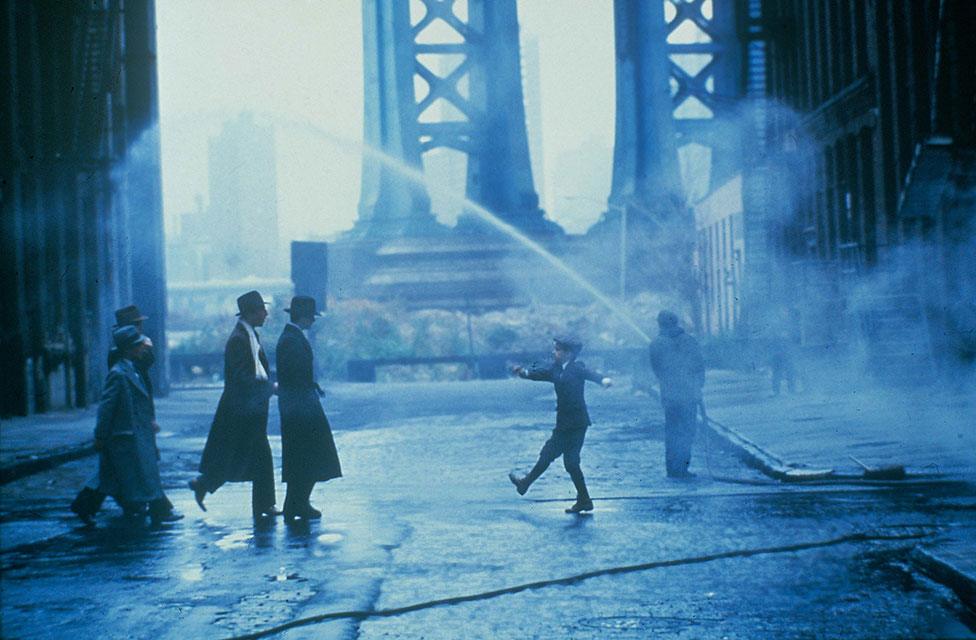
Once Upon a Time in America, 1984
During his expansive career, the composer received Oscar nominations for Days of Heaven, The Mission, The Untouchables, Bugsy and Malena.
His score for The Mission was described as so moving that rather than complementing the film, it overwhelmed it.
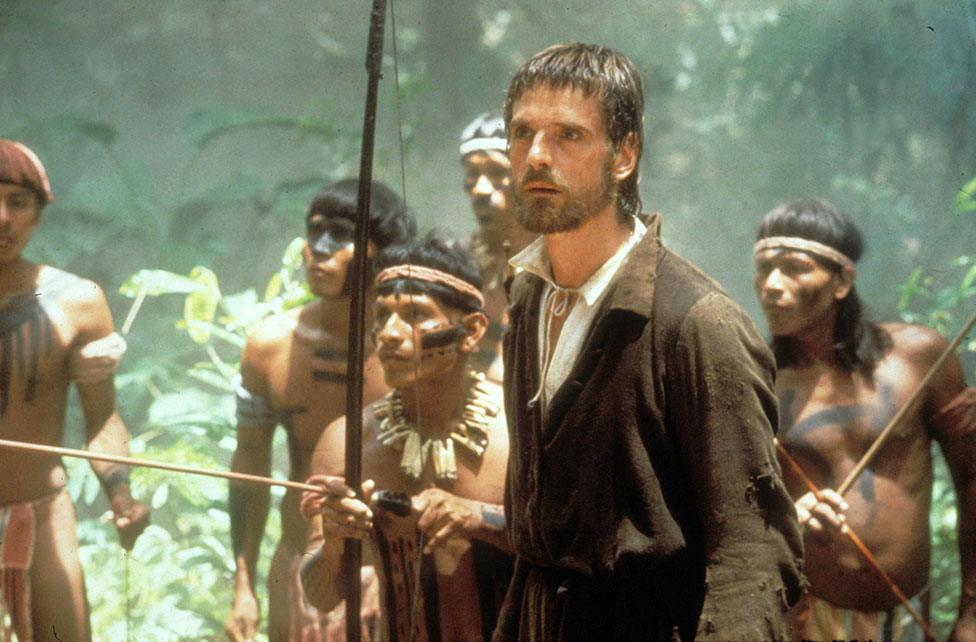
Jeremy Irons in The Mission, 1986
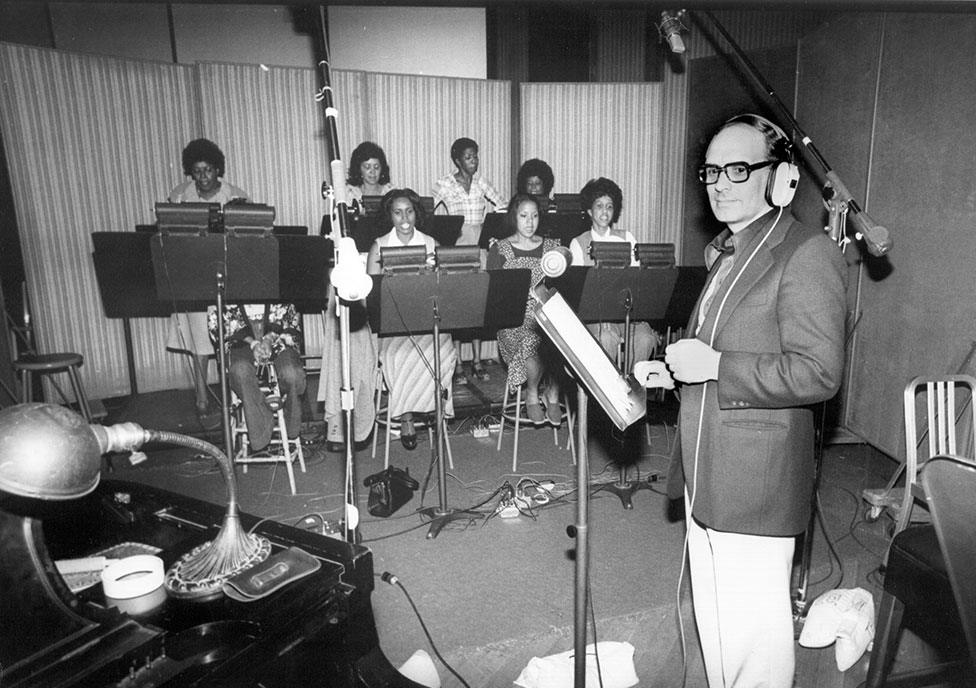
Morricone records a choral group for the score of the film Exorcist II: The Heretic, in 1977
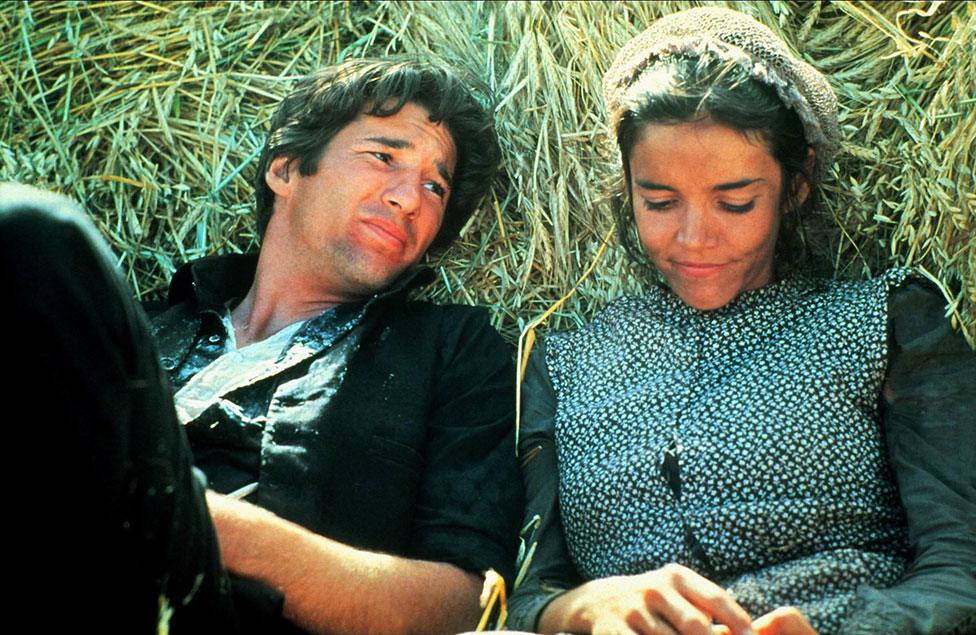
Richard Gere and Brooke Adams in Days of Heaven, 1978
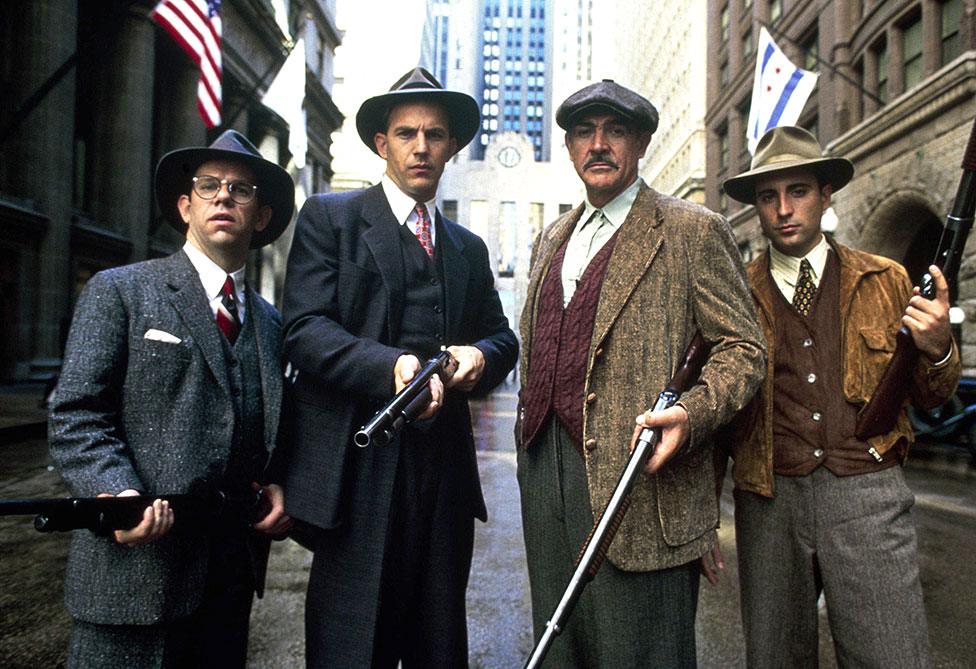
(left to right) Charles Martin Smith, Kevin Costner, Sean Connery and Andy Garcia in The Untouchables, 1987
He was awarded an honorary Oscar in 2007 and went on to win an Oscar for best original score in 2016 for Quentin Tarantino's The Hateful Eight.
It was Morricone's first Western score for more than three decades.
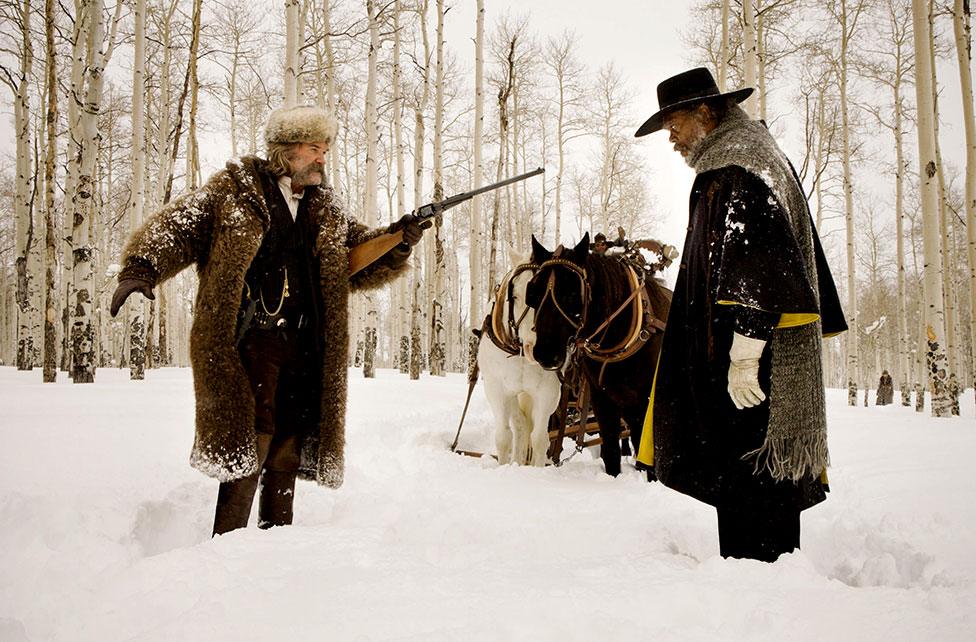
Kurt Russell (left) and Samuel L Jackson in The Hateful Eight, 2016
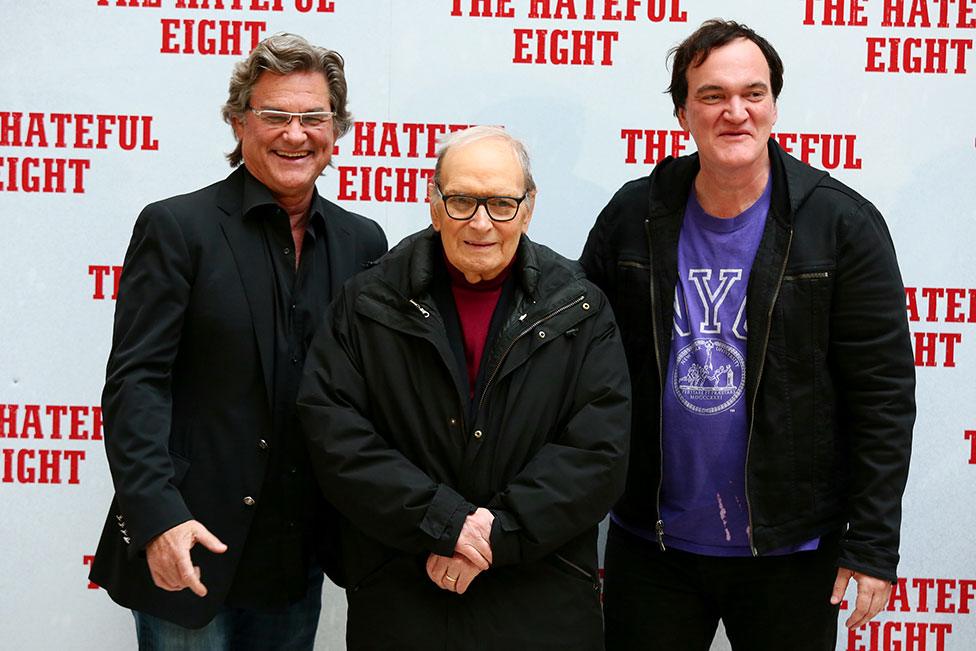
(left to right) Kurt Russell, Ennio Morricone and Quentin Tarantino attend a photocall for The Hateful Eight in Rome
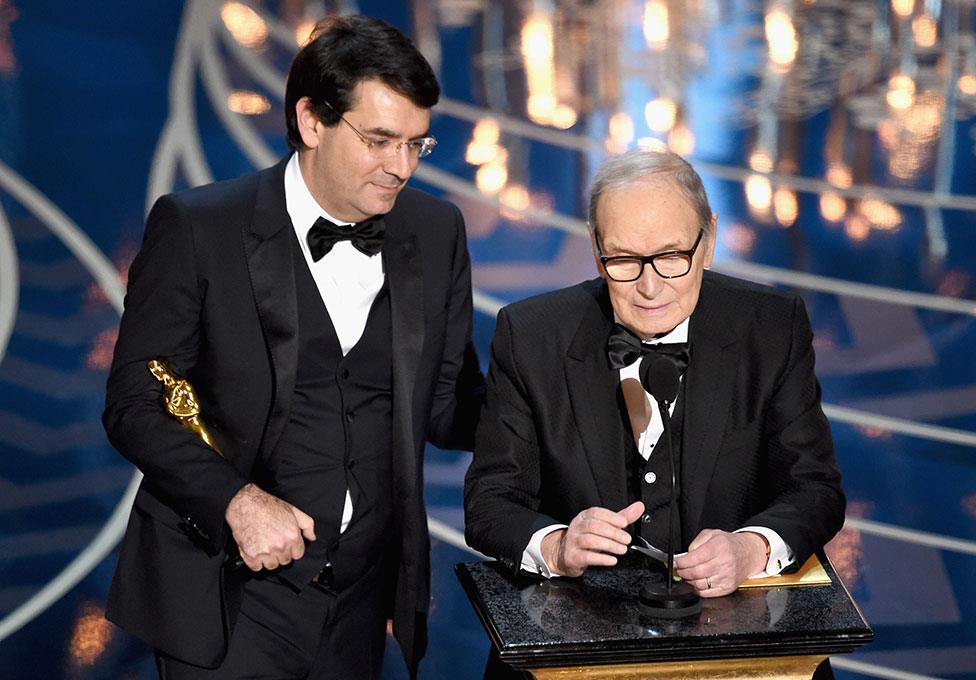
Ennio Morricone (right) accepts the best original score award for The Hateful Eight with his son and interpreter, Giovanni Morricone, at the 88th Annual Academy Awards in Hollywood in 2016
For his 75th birthday in 2003, a concert of film music at London's Royal Albert Hall saw musicians conducted by Morricone playing music from a selection of his compelling scores.
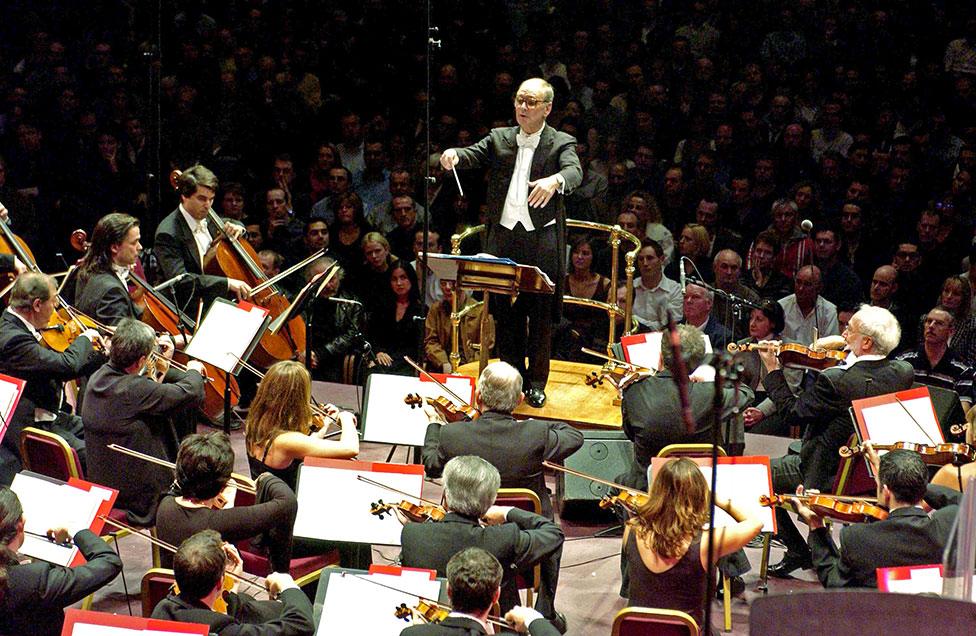
Ennio Morricone conducts at the Royal Albert Hall in a concert to celebrate his 75th birthday
His death was marked by Italian health minister Roberto Speranza, who tweeted: "Adieu maestro, and thank you for the emotions you gave us."
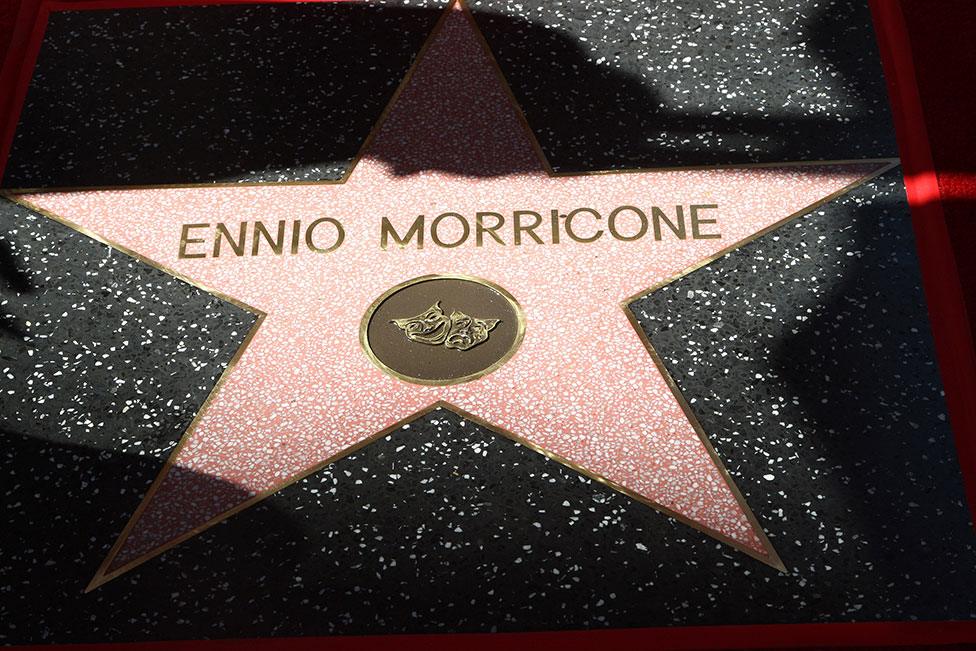
Ennio Morricone's star on The Hollywood Walk Of Fame
All pictures subject to copyright.